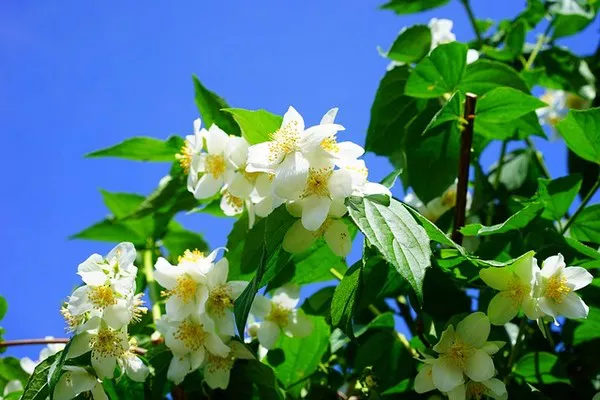Jasmine, with its delicate petals and intoxicating fragrance, has enthralled humanity for centuries. This exquisite flower, revered across cultures for its beauty and symbolism, holds a special place in the hearts of many. From ancient rituals to modern perfumery, jasmine continues to weave its magic, captivating all who encounter it. In this article, we delve into the allure of jasmine, uncovering what makes it so special and exploring its myriad uses and significance.
A Brief Overview of Jasmine
Jasmine, belonging to the Oleaceae family, encompasses over 200 species of flowering plants, primarily native to tropical and subtropical regions of Eurasia, Australasia, and Oceania. Among these species, Jasminum officinale, commonly known as common jasmine or poet’s jasmine, and Jasminum sambac, known as Arabian jasmine or sampaguita, are particularly renowned for their aromatic blooms.
The Enchanting Fragrance
One of the most captivating aspects of jasmine is its alluring fragrance. The scent of jasmine is often described as sweet, floral, and romantic, with subtle hints of fruitiness and spice. This intoxicating aroma is due to the presence of compounds such as benzyl acetate, linalool, and indole in the flower’s essential oil.
Cultural Significance
Across various cultures and traditions, jasmine holds deep symbolic meaning. In many Asian countries, including India, Thailand, and the Philippines, jasmine is revered for its purity, beauty, and association with spirituality. It is commonly used in religious ceremonies, weddings, and festivals as a symbol of love, devotion, and auspiciousness.
Health and Well-being Benefits
Beyond its aesthetic and aromatic qualities, jasmine is also valued for its potential health benefits. In traditional medicine systems like Ayurveda and Traditional Chinese Medicine (TCM), jasmine is believed to have therapeutic properties. It is often used to alleviate stress, anxiety, and depression, promote relaxation, and improve sleep quality. Additionally, jasmine tea is cherished for its soothing effects and purported antioxidant properties.
Culinary Delights
Jasmine’s enchanting aroma extends to the culinary world, where it adds a delightful fragrance and flavor to various dishes and beverages. Jasmine rice, renowned for its subtly perfumed aroma, is a staple in Southeast Asian cuisine, particularly Thai and Vietnamese dishes. Furthermore, jasmine flowers are used to infuse teas, syrups, and desserts, imparting their distinctive floral essence to culinary creations.
Art and Literature Inspiration
Jasmine’s timeless beauty and evocative fragrance have inspired artists, poets, and writers throughout history. From classical paintings depicting lush jasmine gardens to romantic poetry extolling its virtues, jasmine has left an indelible mark on the realms of art and literature. Its association with love, passion, and sensuality has made it a recurrent motif in various artistic expressions across cultures.
In Perfumery
Jasmine occupies a revered position in the world of perfumery, where it is prized for its exquisite fragrance and versatility. The essence of jasmine, extracted through solvent extraction or enfleurage, is a cherished ingredient in numerous perfumes, imparting a luxurious floral note that evokes sophistication and allure. Whether used as a standalone fragrance or blended with other floral or oriental notes, jasmine adds depth and complexity to perfumes, making it a perennial favorite among perfumers and fragrance enthusiasts alike.
Environmental and Conservation Considerations
Despite its cultural and commercial significance, jasmine cultivation faces environmental challenges and conservation concerns. Habitat loss, deforestation, and climate change threaten wild jasmine populations, while intensive agricultural practices pose risks to biodiversity and ecosystem health. Sustainable cultivation practices, coupled with efforts to protect natural habitats and promote biodiversity conservation, are crucial for ensuring the long-term viability of jasmine cultivation and preserving its ecological significance.
Conclusion
In conclusion, jasmine’s enduring appeal lies in its ethereal beauty, captivating fragrance, and rich cultural heritage. From ancient rituals to modern perfumery, jasmine continues to captivate hearts and minds, transcending geographical and cultural boundaries. As we celebrate the enigmatic elegance of jasmine, let us also strive to protect and preserve this precious flower for generations to come, ensuring that its timeless charm endures in the tapestry of human experience.


